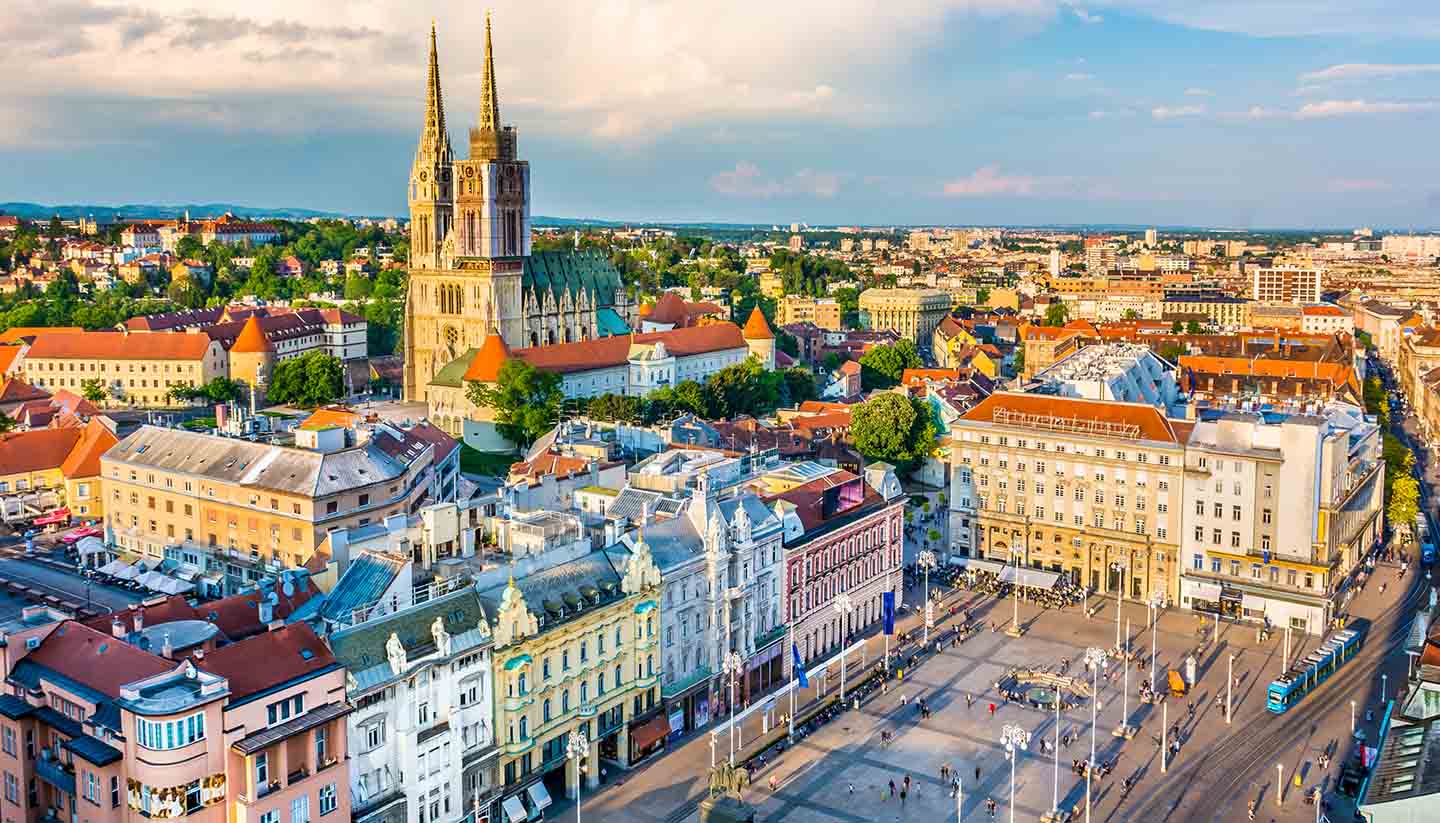Getting Around Croatia
Air
Zagreb (ZAG), Rijeka (RJK), Split (SPU), Pula (PUY) and Dubrovnik (DBV) international airports all receive domestic flights. Domestic services also run to Zadar (www.zadar-airport.hr) and Osijek (www.osijek-airport.hr), which both handle some international traffic, and the smaller airports on the islands of Brac (www.airport-brac.hr) and Los¡inj (www.airportmalilosinj.hr).
The main domestic routes operated by Croatia Airlines (www.croatiaairlines.com) are Zagreb-Dubrovnik and Zagreb-Split.
Note: Buying domestic tickets while in Croatia can sometimes be cheaper than online.
Road
There is a good motorway network (though the extension to Dubrovnik isn't yet complete). In some areas the road quality decreases somewhat, and the main coastal highway gets extremely congested during peak season.
Side of the road
RightRoad Quality
Croatia has an extensive network of highways (designated as E roads) and unclassified roads. Motorway connections are continually improving, and Croatia's 11 motorways are designated with the numbers A1 to A11.
The A1 is the main artery between Zagreb and Split. The A2 runs between Ljubljana (Slovenia) and Zagreb (Croatia), connecting Zagreb directly to the Western European highway system.
Road Classification
Motorways are designated ‘A’, highways as ‘E'.
Car Hire
International and local car hire firms have offices in Croatia's airports, cities, bigger towns and leading resorts.
Taxi
Registered taxis are easy to find and safe. Since fares are regulated, they're reasonably priced too.
Bike
Local tourist agencies in many main centres hire bikes, and some local tourist boards (eg Zagreb County, www.tzzz.hr) have cycle routes and maps online.
Coach
Regular coaches operate between most towns (see Zagreb bus station website, www.akz.hr).
Regulations
The minimum driving age is 18. Speed limits are 130kph (81mph) on motorways, 110kph (62mph) on highways, 50kph (31mph) in built-up areas and 90kph (50mph) outside built-up areas. Heavy fines are imposed for speeding.
It's compulsory for front and rear passengers to wear seat belts. It is illegal to use a handheld mobile telephone while driving. Headlights should be turned on at all times. Driving is on the right.
Breakdown services
Hrvatski Autoklub (HAK) operates an emergency service (tel: +385 1 987; www.hak.hr).
Documentation
National or International Driving Permit. All motorists should also carry a valid passport or national identity card as proof of identity at all times. A Green Card should be carried by visitors (except EU nationals) taking their own car into Croatia.
National registration in the country of origin is required for all foreign vehicles. Third party insurance is mandatory when hiring a car and a valid credit card is also needed.
Urban travel
Most towns and cities have a comprehensive local bus network; trams operate in many cities (Zagreb, Split, Osijek, etc). The historic centre of some towns (Split, Dubrovnik) are pedestrianised and pleasantly car-free.
Zagreb: You can easily navigate the centre of Zagreb on foot. It also has a good network of trams and buses run by ZET (www.zet.hr), as well as a funicular and taxis.
Dubrovnik: Dubrovnik's Old City is pedestrianised. Libertas (www.libertasdubrovnik.hr) operates efficient bus services, with stops just outside the Pile and Ploče gates.
Rail
HŽPP (tel: +381 1 378 2583; www.hzpp.hr/en) operates trains in Croatia. The main rail routes are Zagreb-Split, Zagreb-Rijeka and Zagreb-Osijek. There are no trains to Dubrovnik. It's generally quicker to travel by bus.
Rail Passes
InterRail One-Country Pass: offers travel for three, four, six or eight days in one month within Croatia. Travel is not allowed in the passenger's country of residence. Travellers under 26 years receive a reduction. Children under 12 travel free when accompanied by an adult using an Adult Pass. Supplements are required for some high-speed services, seat reservations and couchettes. Available from Voyages-sncf.com (tel: +44 844 848 5848, in the UK; www.voyages-sncf.com).
Water
Jadrolinija (tel: +385 51 666 111; www.jadrolinija.hr) is the main provider of car and passenger ferries and catamarans in Croatia. There are regular connections between the main ports and the offshore islands. A coastal service runs all the way from Rijeka in the north to Dubrovnik in the south, via Split, Stari Grad and Korcula.


